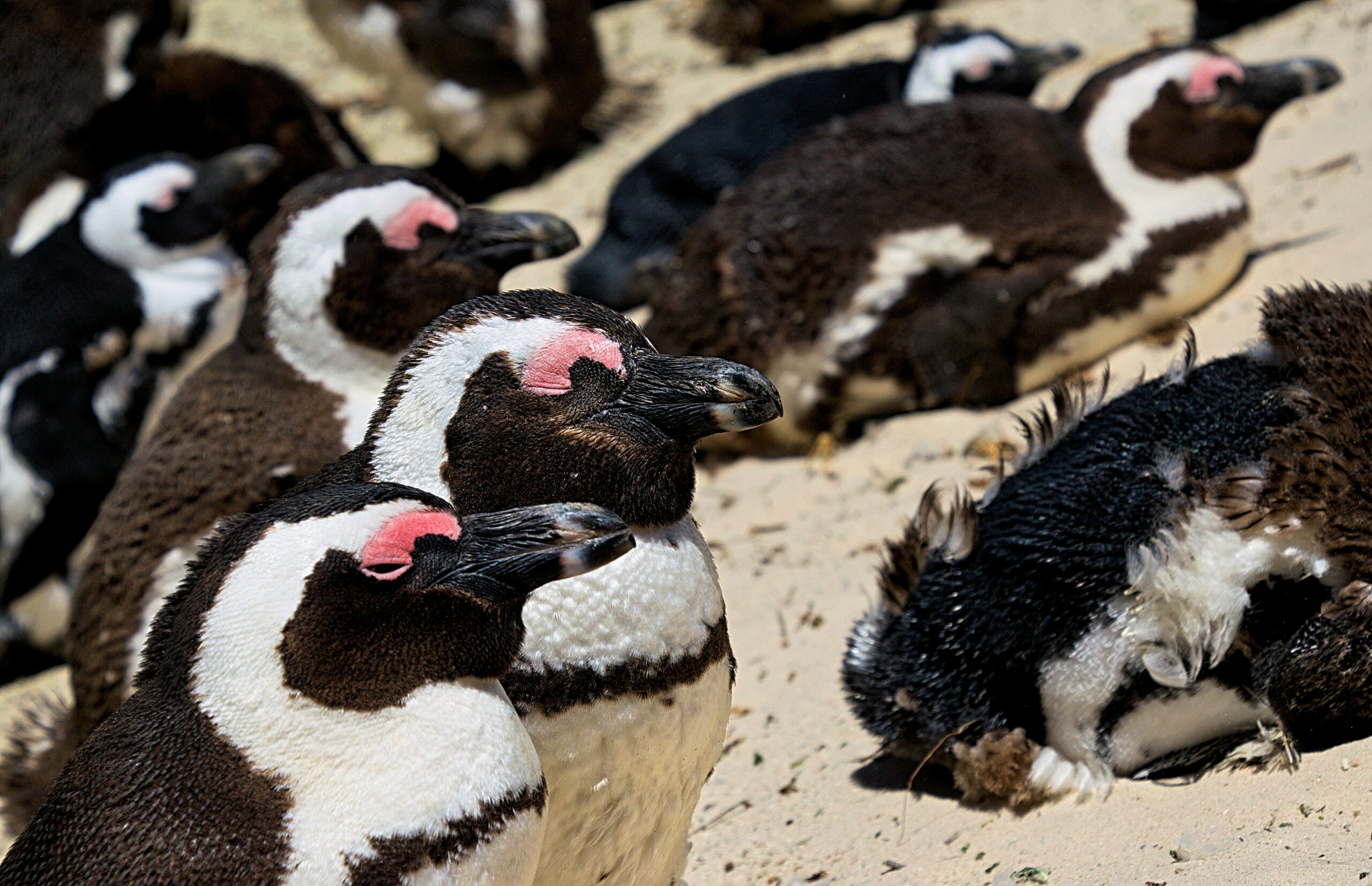Ship-to-ship fuel bunkering must urgently be included as a Listed Activity under SA’s environmental law

As published in Daily Maverick on 20 September 2022
Algoa Bay is an area of exceptional biodiversity and ecological sensitivity. This is recognised by the declaration of the Addo Elephant Marine Protected Area, the Algoa to Amathole Ecologically and Biologically Significant Area (offshore of Gqeberha), and the inclusion of Bird Island and St Croix Island within a global network of Important Bird and Biodiversity Areas, supporting respectively globally important populations of the endangered African penguin and Cape gannet.
The bay is also an important site for migratory humpback and southern right whales as well as resident populations of bottlenose and common dolphins and Bryde’s whales.
But Algoa Bay is also one of South Africa’s busiest shipping routes, and commercial ship-to-ship (STS) marine fuel bunkering activities, which began in 2016, are threatening its sensitive biodiversity beyond the point at which it may be able to recover.
In 2015, Algoa Bay supported 54% of South Africa’s population of African penguins. St Croix Island was the largest colony of this species by a significant margin, contributing 40% of the South African population.
Since then, the Algoa Bay population has decreased from 10,906 breeding pairs to just 2,821, constituting only 28% of the South African population, with the St Croix colony now being the fourth-largest in South Africa (Department of Forestry, Fisheries and the Environment 2022, unpublished data).
STS bunkering, which involves the transfer of fuel from one vessel to another while at sea, is a high-risk operation that can cause severe marine pollution through oil and fuel spills. In addition, bunkering operations attract large vessels into the bay, increasing shipping traffic and noise, which has a demonstrable impact on foraging and breeding patterns.
As it is, bunkering activities have had devastating impacts on endangered seabird populations. Four significant oil spills have occurred since 2016 as a result of incidents associated with STS bunkering, resulting in significant numbers of oiled seabirds.
A groundbreaking new study has also recently provided the first scientific evidence that an increase in vessel-driven noise after STS bunkering began in Algoa Bay in 2016 was significantly associated with the fastest short-term decline of an African penguin population on record (an 85% decline of the once largest colony at St Croix Island since 2016).
Given the immense risks that STS bunkering activities pose to marine biodiversity, the fact that three long-term licences have been awarded to conduct such activities in Algoa Bay in the absence of comprehensive environmental impact assessments (EIA) having been conducted seems unfathomable.
But currently, STS bunkering is not listed in the EIA Regulations under the National Environmental Management Act, 1998 (Nema). This means STS bunkering may be authorised without the full range of direct, indirect and cumulative impacts being assessed, and without stakeholders being consulted.
The only regulatory requirements for conducting STS bunkering are a licence from the Transnet National Ports Authority (TNPA) (in terms of section 80(2) of the National Ports Act, 2005 and the National Ports Rules) and permission from the South African Maritime Safety Authority (Samsa) under section 21 of the Marine Pollution (Control and Civil Liability) Act, 1981. Neither of these two statutes make provision for an EIA before the authorisation of bunkering.
In addition, draft Codes of Practice for Bunkering and STS Transfers have been developed by Samsa, but these do not go nearly far enough in assessing and addressing the full range of environmental impacts associated with STS bunkering. Furthermore, the codes will not have the force of law and their implementation therefore cannot be enforced. The situation is woefully inadequate, considering the future of an endangered species is at stake.
Given the significant impacts that STS bunkering is having and may continue to have on marine biodiversity, the Biodiversity Law Centre, together with BirdLife South Africa and Sanccob wrote to Environment Minister Barbara Creecy on 9 September 2022 requesting that STS bunkering be included as a Listed Activity under the EIA Regulations.
The purpose of this is to bring such activities within the ambit of integrated environmental management and the regulatory framework imposed by Nema. This means that a full EIA would be required that identifies, predicts and evaluates the actual and potential impacts of STS bunkering on the environment, socioeconomic conditions and cultural heritage.
Crucially, listing STS bunkering provides an opportunity for public participation in the EIA process, which ensures that relevant information from stakeholders is placed before the competent authority when deciding whether or not to authorise STS bunkering.
Requiring an EIA before granting an environmental authorisation also gives the competent authority the opportunity to impose enforceable conditions, thereby mitigating potential negative impacts and ensuring the bunkering activities are conducted with as little risk to marine biodiversity, tourism and livelihoods as possible.
Including STS bunkering as a Listed Activity would also bring the activity within the ambit of the compliance and enforcement provisions of Nema, enabling the imposition of significant penalties for any non-compliance, and is consistent with South Africa’s obligations under international law.
A moratorium is currently in place which puts on hold all new applications for bunkering in Algoa Bay until a comprehensive risk assessment has been conducted. This assessment is being undertaken under the auspices of the TNPA, but there are doubts as to whether it will adequately address the full extent of the risks associated with STS bunkering.
In any event, a one-off general risk assessment can never be a replacement for a rigorous assessment of project-specific impacts related to the carrying out of a particular activity in a particular location.
The future of endangered species is at stake. Bringing bunkering activities within the environmental regulatory framework is urgently necessary.